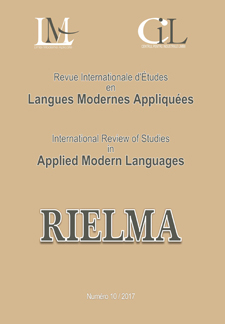
We kindly inform you that, as long as the subject affiliation of our 300.000+ articles is in progress, you might get unsufficient or no results on your third level or second level search. In this case, please broaden your search criteria.

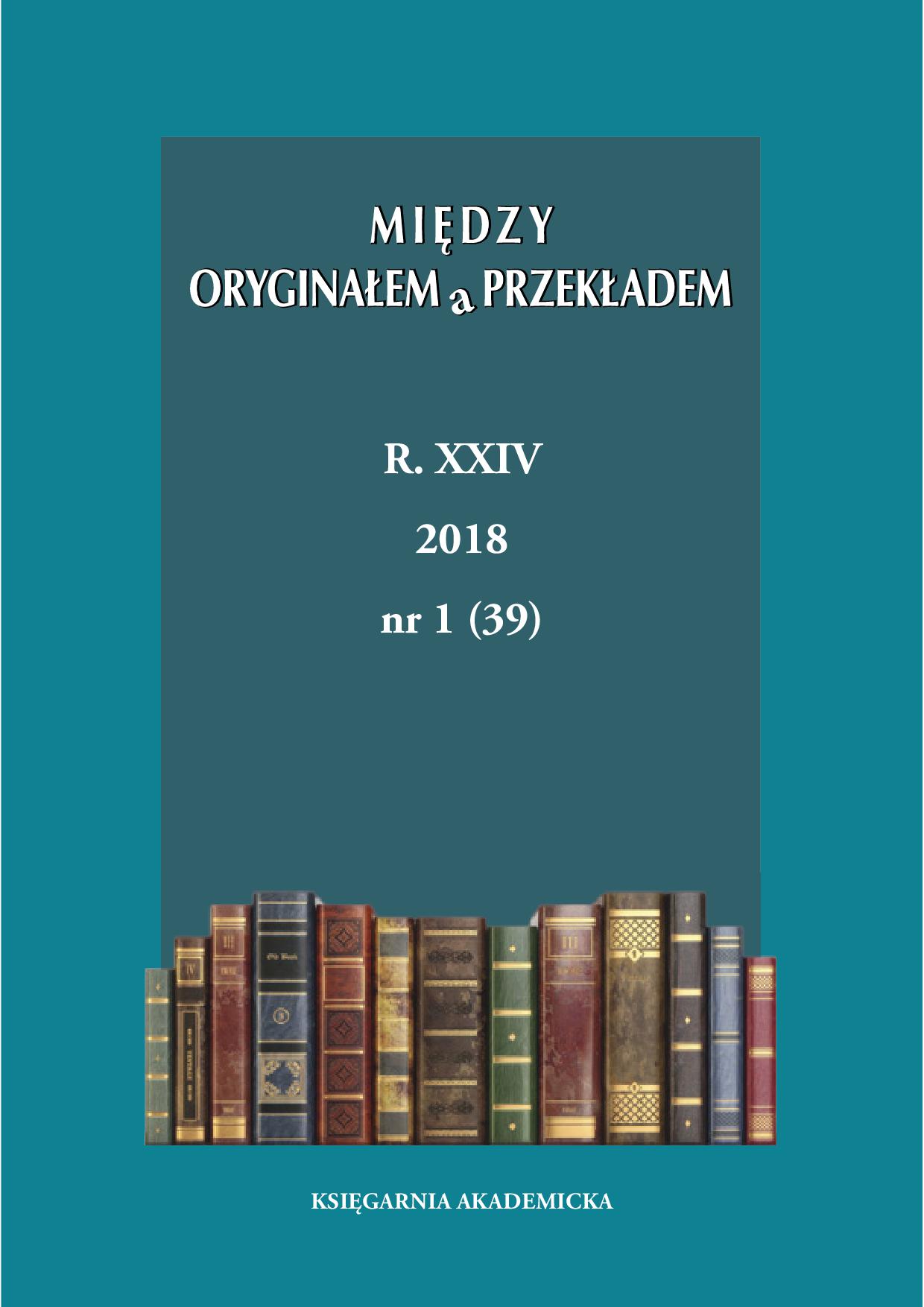
The current article studies the changing attitudes of the German thinkers of the Pre-Romantic and Romantic periods towards the roles and tasks of the literary translator, based on opinions expressed by J.G. Herder, A.W. Schlegel, J.W. Goethe, F. Schleiermacher. The analysis is performed in an attempt to determine the extent of valuation of the roles imposed on literary translators and the current relevance of the ideas on translation advanced in the period under discussion.
More...
The article characterizes Jan Nepomucen Kamiński as a translator and seeks to determine how important to him was his translation work compared to his other activities (e.g. he is mostly known as the director of the Polish theatre in Lviv). Kamiński’s way to becoming a translator is presented, as well as his socialization in languages and literature. Furthermore, the article gives more detailed information about the translations of Schiller, because Kamiński is mainly known as a translator of this German author. Finally, Kamiński’s conception of translation is discussed, based on the lyrical reflections „O tłómaczeniu” (About translation).
More...
The article presents an attempt to view the process of translation of poetic texts from the perspective of the quest for truth perceived as one of the translators tasks. The theoretical background is discussed in the first part of the article, which offers a short presentation of contemporary concepts of truth in reference to literary translation. The philosophical background is provided by Heidegger’s hermeneutic concept of truth embedded in a work of art (aletheia). The paper’s thesis is illustrated by a brief analysis of selected aspects of the translation process of Sylvia Plath’s poem „Death&Co.”
More...
The article concentrates on the possibilities of establishing the aim of translation in the framework of the skopos theory, and is an attempt to determine to what extent, and how, the functional approach can help in defining the translator’s role and, in consequence, influence the translation choices he makes.
More...
Ancient Greek tragedies were written by their authors to be performed on the Athenian stage and the shape of this stage with its technical devices was included in characters’ lines. However, there is a fundamental difference between the stage those plays were written for and the modern stage on which any drama translation may potentially be realized. The time span too poses a great difficulty for a translator as those plays belong to a culture we probably cannot truly access any more. According to Jerzy Ziomek, every text from the past needs to be adapted nowadays. But does it mean that a translator of any ancient drama aware that those plays were written to be performed on stage, can for various reasons, whether literary or theatrical, take on the role not only of the first reader, but also of the first producer of a given play, thus adapting it to the modern theatre stage?
More...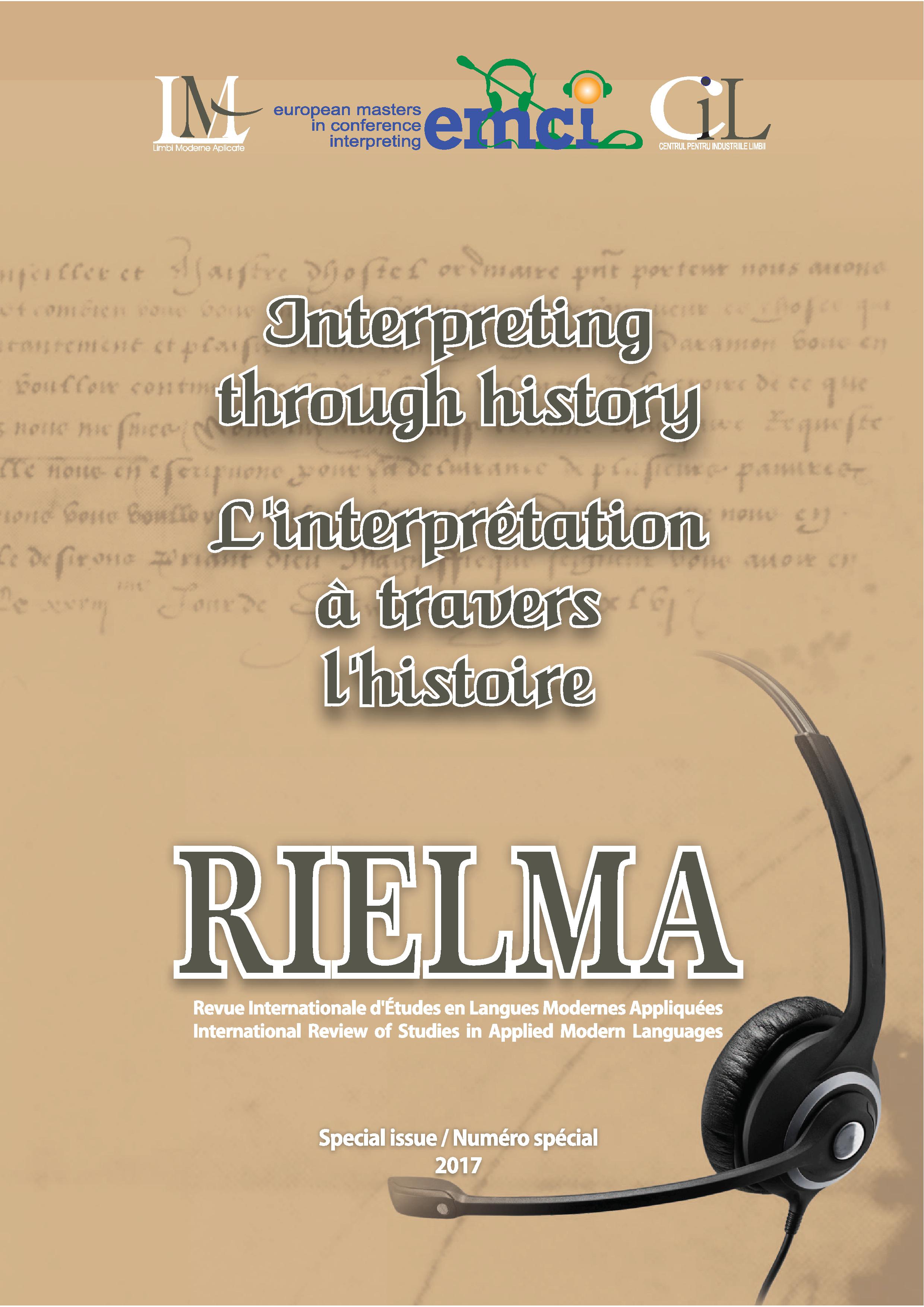
Based to a large extent on the experiences of the pioneers of the interpreting profession, together with a number of news reports and programmes from visual and print media, this paper aims to illuminate the beginnings of professional conference interpreting in Turkey. The development and success of the profession wÖas supported by significant contributions from the Business Administration Institute of Istanbul, in cooperation with the Harvard Business School and Ford Foundation, the Economic and Social Studies Conference Board, and individuals such as Gloria Wagner, Nezih Neyzi, Norayır Altınyan, as well as the founders of Turkey’s two major industrial companies, Nejat Eczacıbași and Vehbi Koç.
More...






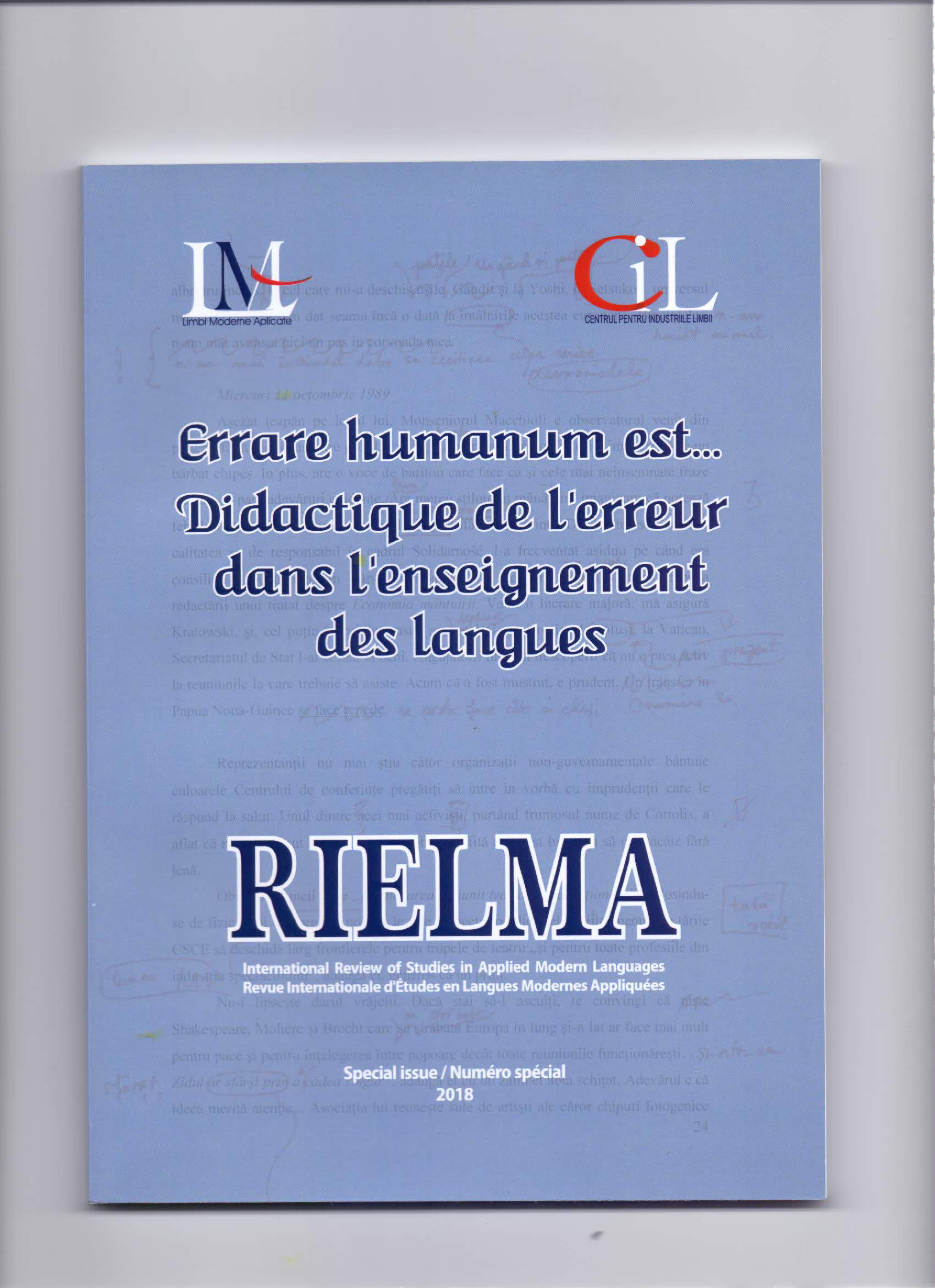
Starting from the multiple ways of exploiting errors within the learning process as a whole, this article aims at illustrating the importance of an adequate management of translation errors by bothteacher and student. Translating means striving to find the right word and knowing how to gradually grasp the meaning of the text, which implies successive drafts, often built on progressively discarded errors, in a spiral process that brings together creative imagination and scientific rigour. By adopting and surpassing, from certain points of view, the difference between ‘error’ and ‘mistake’ present in most translation studies, our article analyses ten translations of a newspaper text from Italian into Romanian. We highlight the types of errors/mistakes, their causes, and their impact on the overall quality of the translated versions, while at the same time underlining the constructive role and usefulness of errors for the teaching of translation.
More...
This article starts from the general field of the language for specific purposes and the translation of specialized texts, with the purpose of analyzing the degree of specialization and the communication situations that intervene in the translation process, together with its stages and specific problems. In this respect, we underline both the characteristics of each stage and the translator’s competences, as well as the difficulties and the correction of errors within the translation process, with a special emphasis on legal language and its texts. As far as the case study is concerned, we focus on the discussion of different examples of good and bad practices, experimented during our courses of legal translation within the Master's Degree in Translation Studies and Terminology of Cluj. The final goal of our study questions the legal language and its complex demands compared to other fields. As a result, we wonder whether translating a legal text would imply a greater probability of producing errors and would also require longer training, documentation, and epistemological education.
More...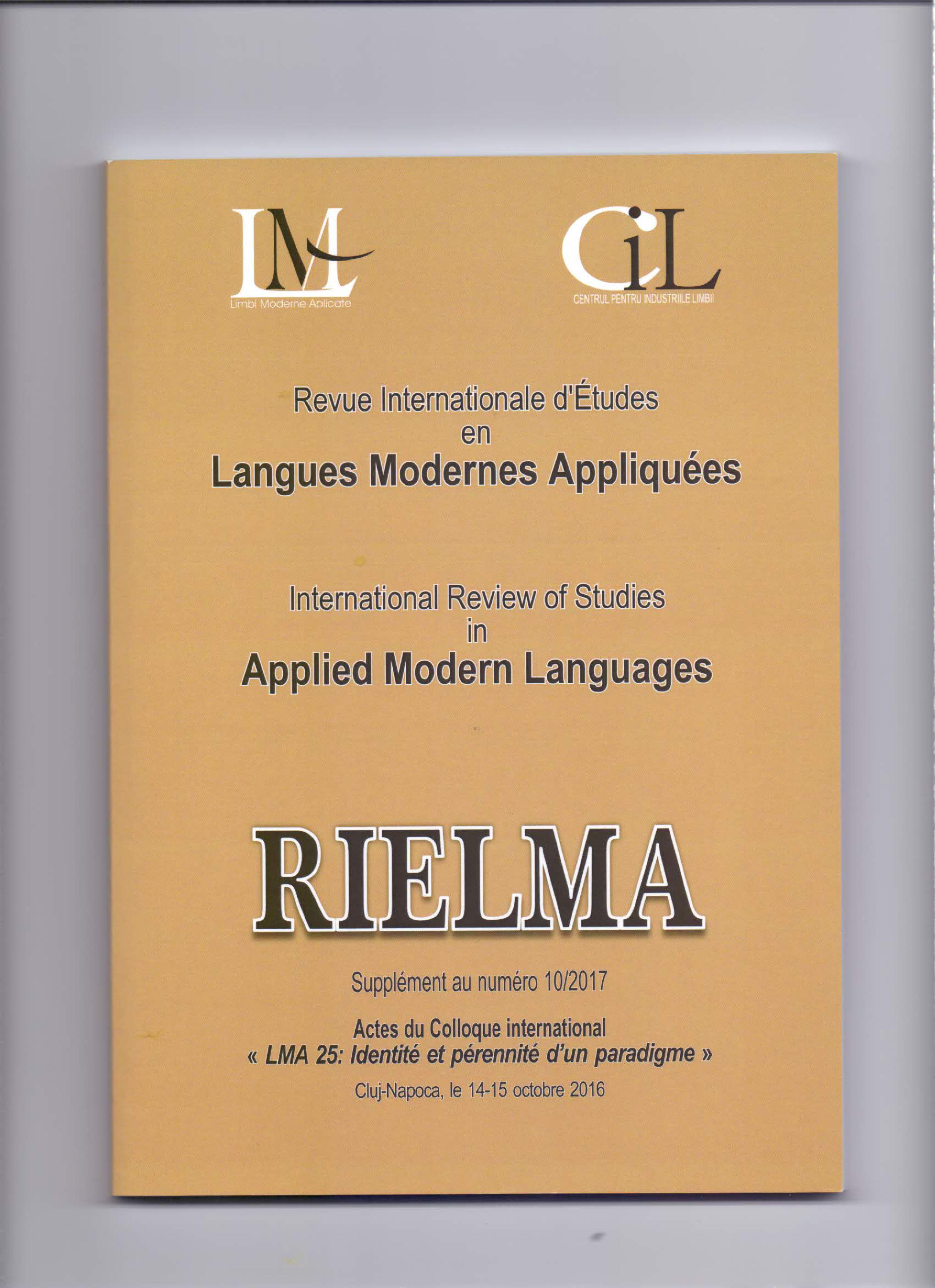

Translator and interpreter training (TIT) as well as its various aspects, such as assessment, course design, the impact of new information and communication technologies have received a lot of attention from researchers. These inquiries tend to focus on the core skills and competences qualified translators and interpreters need to possess in order to be able to render the source language text or speech into the target language. It goes without saying that TIT courses are translation and interpreting-oriented, thus their main aim is to develop these specific skills. Nevertheless, it is also true that several of them, such as information-processing or problem-solving, can be successfully transferred to domains outside language mediation. Other skills, e.g. time management, human cooperation and interaction, various life skills and personality traits, are reinforced during training and are also applicable to areas outside the world of translation. This is the “added value” of TIT. The article argues that this added value is no less important than the core skills and demonstrates, through an empirical study carried out at ELTE University’s Department of Translation and Interpreting, that in addition to the core competences required for translating and interpreting, various organizational, collaborative, cognitive and metacognitive skills are enhanced, which can be very valuable in other domains not necessarily related to language mediation.
More...
This paper aims to analyse certain proper nouns, profoundly rooted in the culture of a speech community. Since a natural language evokes a distinct reality, characteristic to a cultural and geographical space, a proper noun that appeared in such a space may hide peculiar significances. As we know, a culture-bound term requires the revival of the context in which it appeared so that it continues to exist in quotidian usage. Thus, we’ll analyse some proper nouns (encountered in Salman Rushdie’s and David Lodge’s novels) whose origins are made known through the intertextual references revealed within the contexts. Sometimes, an author resorts to puns and allusions involving proper nouns. When translating works of literature, the translator may write down notes, at the bottom of the page, to explain such linguistic artifices, sometimes influencing the text’s reading and interpretation.
More...
The present paper represents a terminological research, based on a theoretical and practical framework which seeks to inventorize the specialized terms regarding the herbaceous medicinal plants spread throughout the Romanian territory. The aim of this paper is to bring to the attention of a large audience the methodology used during the terminological research. The methodology was based on the following steps: the analysis of the involved field of research, the selection of the corpus, the criteria used for the selection of the terms, the design of the conceptual tree, the terminological sheets and the final list of specialized terms. The result of the terminological research is a multilingual glossary.
More...